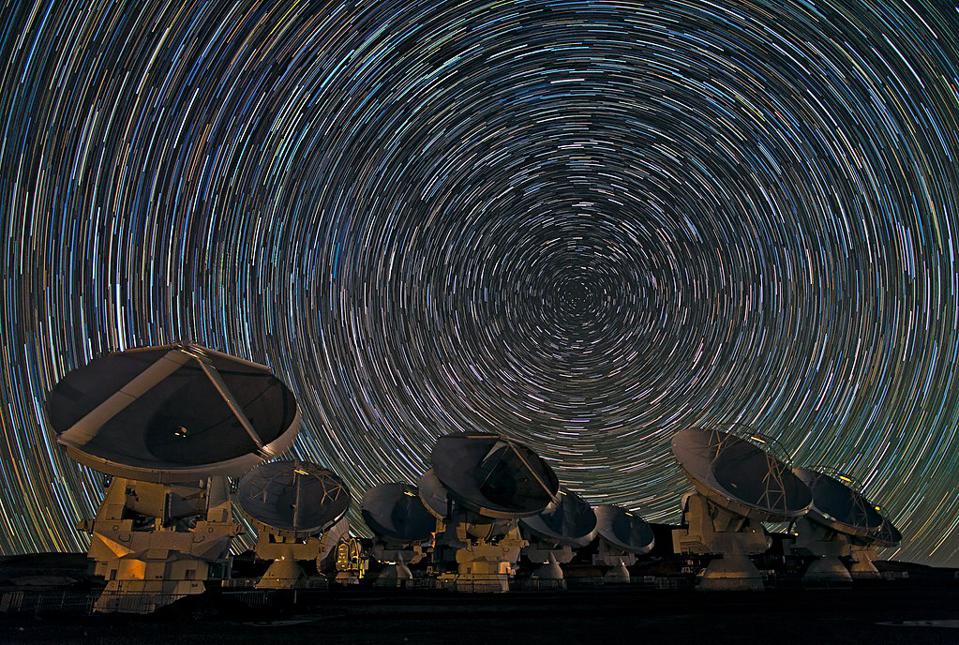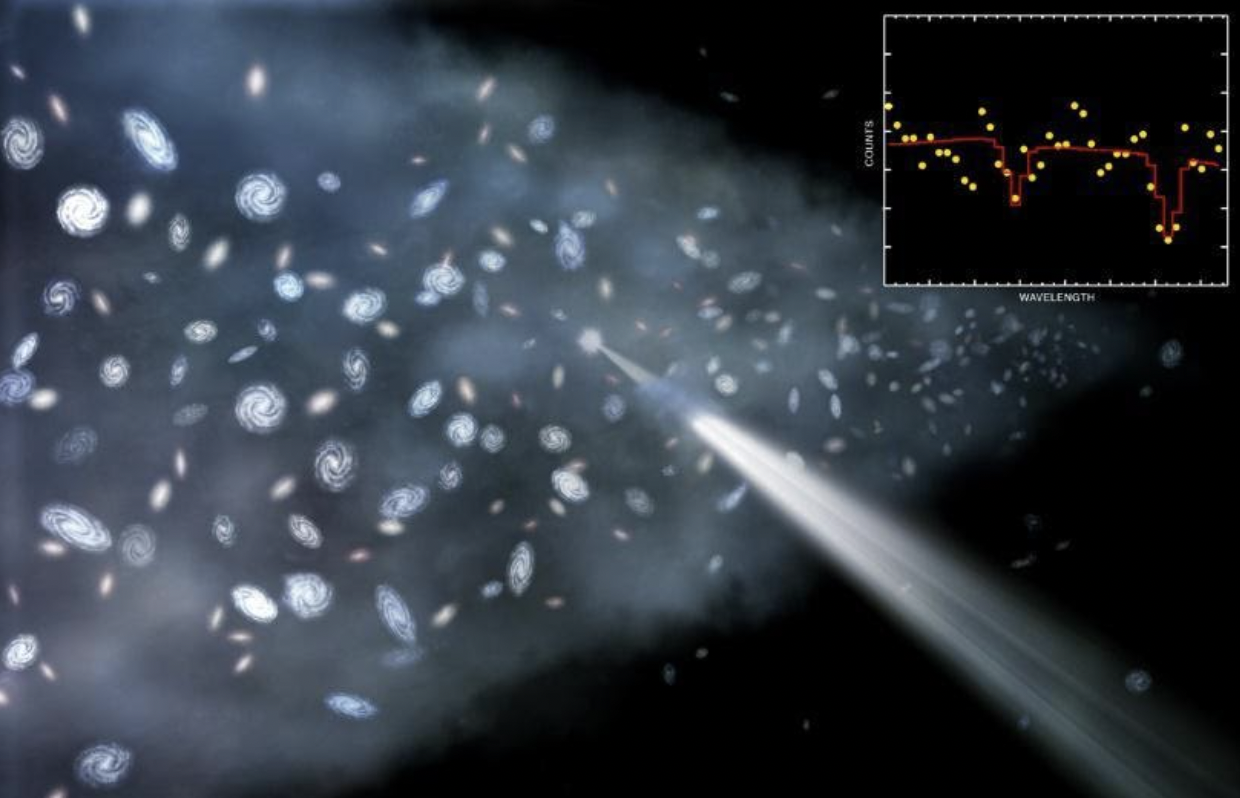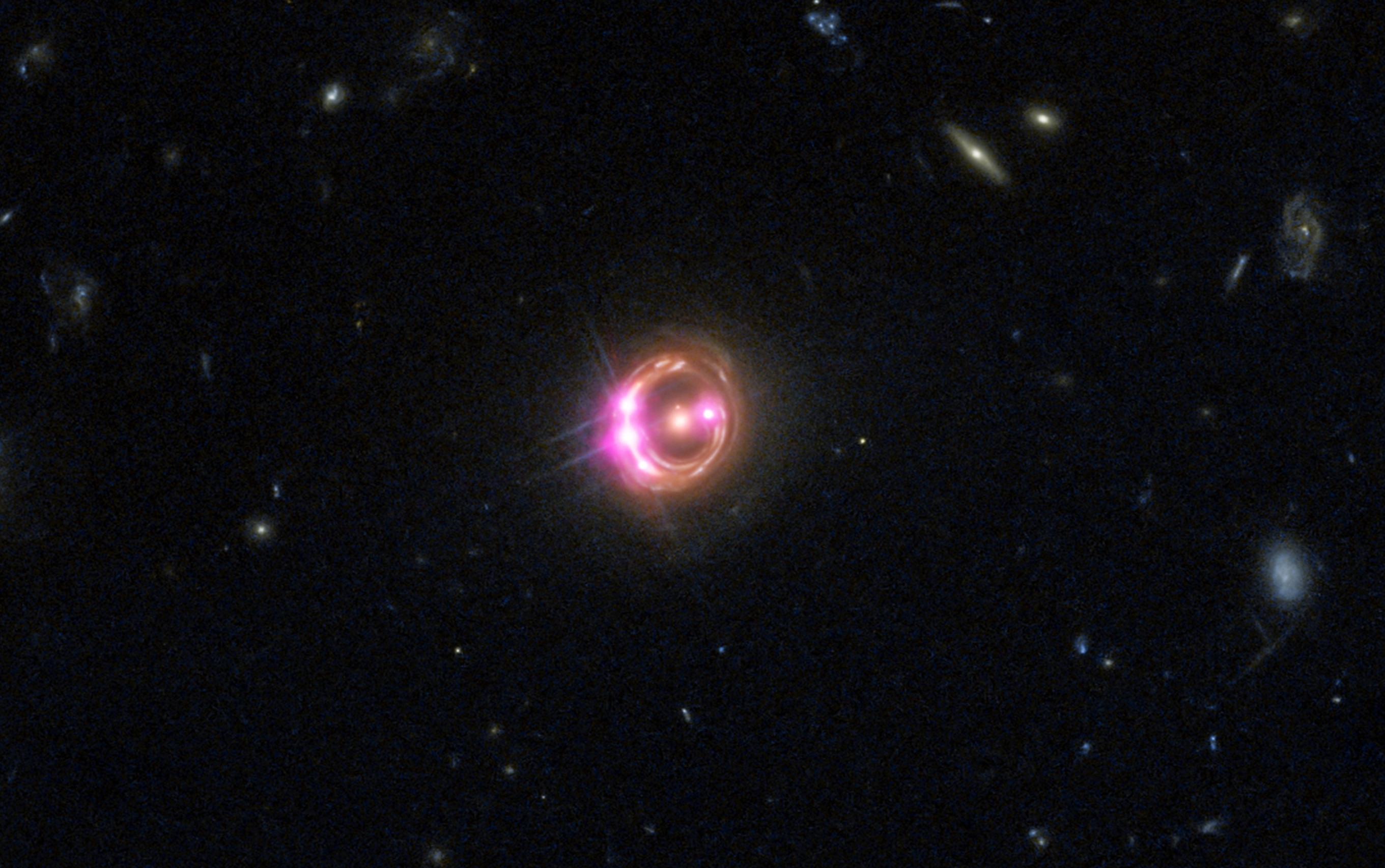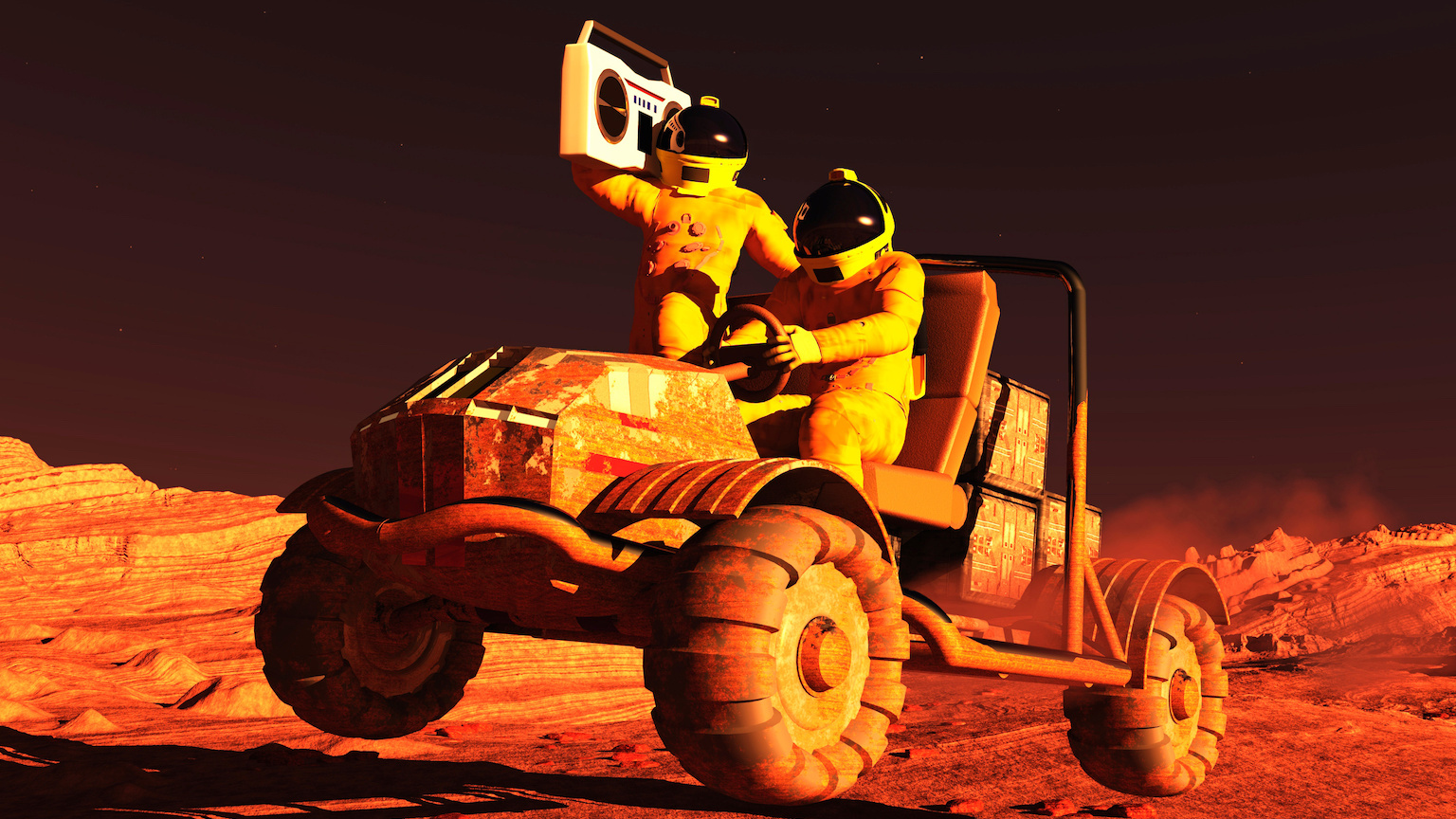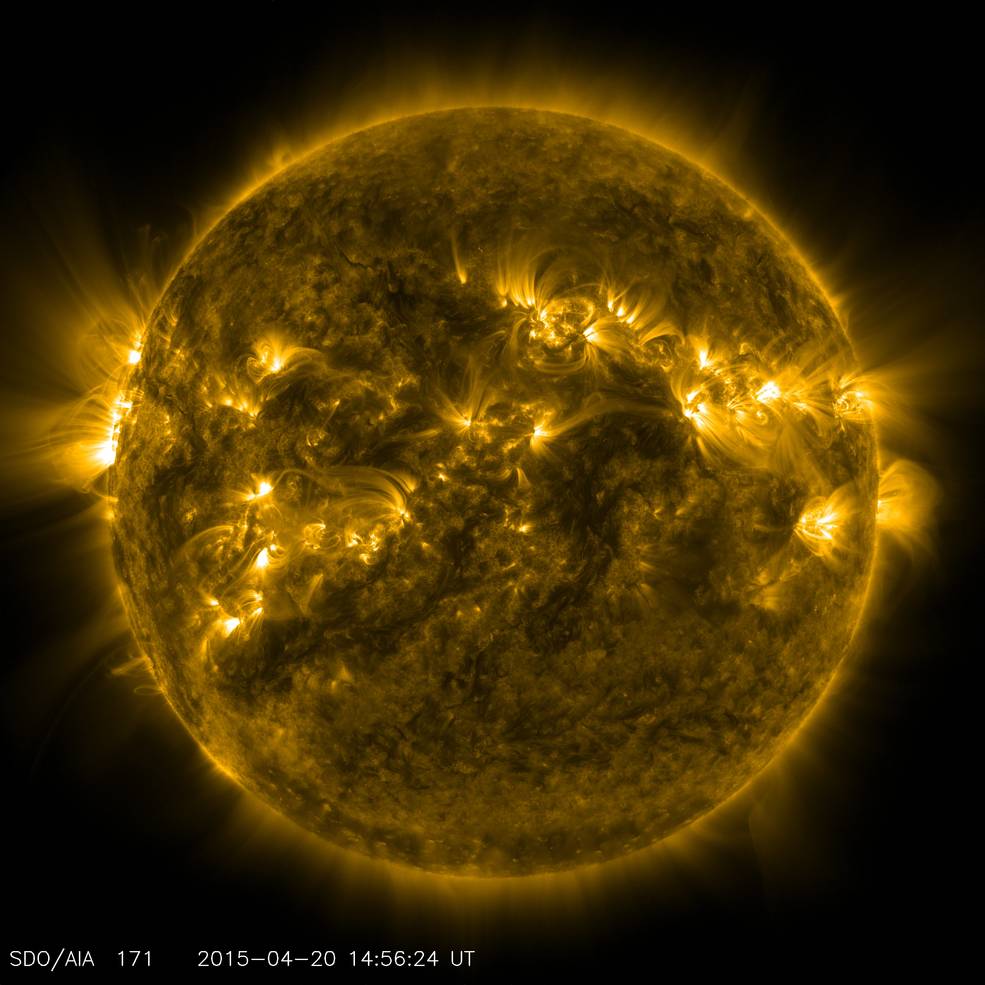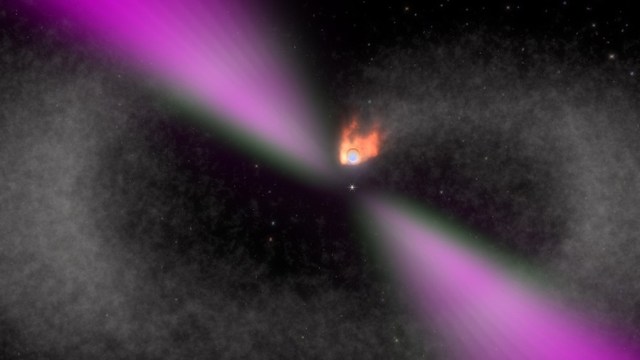Can science explain the beginning of the Universe?

Credit: Zonda / Adobe Stock; Rodion Kutsaev / Unsplash
- The story of the Universe is fundamentally our story, too. We want to know where it all started.
- Current descriptions of the origin of the Universe rest on the two pillars of 20th century physics: general relativity and quantum mechanics.
- There are many questions that call for intellectual humility, and the origin of the Universe is foremost among them.
The origin of the Universe — the beginning of everything — is one question where scientific and religious narratives sometimes get blurred. This is not because they approach the problem in the same way; clearly they do not. It is because the question being asked of both is the same. We want to know how everything came to be. We want to know, because otherwise our story would be incomplete. We are creations of this Universe, and the story of the Universe is fundamentally our story, too.
There is no question that modern cosmology and astronomy have produced a remarkable narrative of the Universe’s early history. But can science really provide an answer?
Like you and me, the Universe has a birthday. We know that it started 13.8 billion years ago, and we can describe with confidence how the young Universe evolved starting from a hundredth of a second after the Big Bang, although there are a few important gaps in the history we have yet to fill.
That knowledge is a phenomenal achievement. But the question that lingers is how close to the source science can get.
The history of life
Things quickly get complicated if we persist with the birthday analogy. You and I have parents. Our parents also have parents, and so on. We can trace this continuity back to the first living entity, what we call our last common ancestor — probably a bacterium that lived over 3 billion years ago.
Once we find that ancestor, we face another tough question: How did this first living entity come to be if there was nothing alive to birth it? The only acceptable scientific explanation is that life must have come from nonlife. It arose at least 3.5 billion years ago from the increased complexity of chemical reactions among the biomolecules present in primordial Earth.
What about the Universe? How did it come to be if there was nothing before?
If the origin of life is mysterious, the origin of the Universe is infinitely more so. After all, the Universe, by definition, includes all there is. How can everything come from nothing?
Science’s job is to develop explanations without recourse to divine intervention. We use the laws of Nature as our blueprint. This limitation makes it a huge conceptual challenge for science to describe the origin of the Universe. This problem is known in philosophy as the First Cause. If the Universe emerged by itself, it was caused by an uncaused cause. It kicked into existence without a source to precede it. Science operates within clear conceptual boundaries. To explain the origin of everything, science would need to explain itself. And to do this, we would need a new mode of scientific explanation.
The story of the Universe cannot start on the second page
Current descriptions of the origin of the Universe rest on the two pillars of 20th century physics. The first pillar is general relativity — Einstein’s theory that gravity is due to the curvature of space caused by the presence of mass. The second pillar is quantum physics, which describes the world of atoms and subatomic particles. Combining the two is quite reasonable, given that in its infancy the whole Universe was small enough for quantum effects to be important. Current models of the origin of the Universe — from string theory to loop quantum gravity to quantum cosmology to a Universe that bounces between expansion and contraction — use the bizarre effects described by quantum physics to explain what seems to be unexplainable. The issue is to what extent they can truly explain the First Cause.
In the same way that a radioactive nucleus spontaneously decays, the entire cosmos could have emerged from a random energy fluctuation — a bubble of space that appeared from “nothing,” the quantity physicists usually call the vacuum.
The interesting thing is that this bubble could have been a fluctuation of zero energy, due to a clever compensation between matter’s positive energy and gravity’s negative energy. This is why many physicists writing for general audiences confidently state that the Universe came from “nothing” — the quantum vacuum is that nothing — and proudly declare that the case is closed. Unfortunately, things are not so simple.
This so-called nothing, the physicists’ quantum vacuum, is far from the metaphysical notion of complete emptiness. In fact, the vacuum is an entity filled with activity, where particles emerge and disappear like bubbles in a boiling cauldron. To define the vacuum, we need to start from many fundamental concepts, such as space, time, energy conservation, and gravitational and matter fields. The models we construct rely on natural laws that have only been tested for situations far removed from the extreme environment of the primordial Universe.
The quantum vacuum is already a structure of enormous complexity. To use it as a starting point is to begin the story of the Universe on the second page of the book.
Our attempts to understand how the Universe began require us to extrapolate what we know to energies 15 orders of magnitude above what we can test (that’s a thousand trillion times). We hope that things will make sense, and currently we cannot predict that they won’t. However, these predictions about the early Universe are based on what we can measure with our machines, and using current models of high-energy physics. Those models are also based on what we can measure, and on what we consider reasonable extrapolation. This is fine, and it is the approach we have to take in order to push the boundaries of knowledge into unknown realms. But we should not forget what this theoretical framework rests on and claim that we know for sure how to conceptualize the origin of the Universe. Mentioning the multiverse, stating that it is eternal, and concluding that our Universe is a bubble sprouting from it, does not bring us any closer to a real answer.
The Universe will humble anyone
It does not seem to me that science as it is formulated now can answer the question of the origin of the Universe. What it can do is furnish models that describe possible scenarios. These models are excellent tools that we can use to push the boundaries of knowledge to earlier and earlier times, in the hope that observations and data will guide us further.
However, this is very different from explaining the origin of life through complex chemistry. To explain the origin of everything, we need a science capable of explaining itself and the origin of its laws. We need a metatheory that explains the origin of theories. A multiverse is not a way out. We still require the conceptual apparatus of space, time, and fields to describe it. Nor do we have any idea how the laws of Nature may vary among this multiverse’s different branches.
The infinite and its opposite, nothingness, are essential tools for mathematics. But they are very dangerous as concepts to describe physical reality. They are labyrinths where it is too easy to get lost, as Jorge Luis Borges reminds us in The Library of Babel.
To identify a conceptual scientific difficulty is often derided as taking a defeatist position. The rhetorical question that follows is, “Should we give up then?” Of course we should not. Knowledge only advances if we push it forward and take risks doing so. There is no fault in our drive to make sense of a deep mystery through reason and scientific methodology. This is what we do best. What is a fault is to claim that we know much more than we do, and that we have understood things that a moment’s reflection will tell us we are very far from understanding. There are many questions that call for intellectual humility, and the origin of the Universe is foremost among them.
